RV Checklist Guide – 5 Tips For Any Road Trip
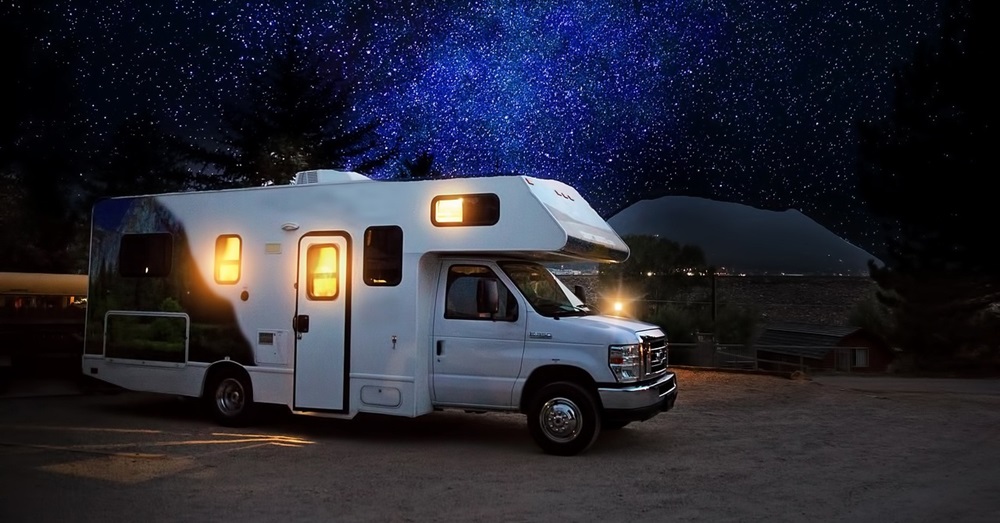
Before setting off on any journey there are a few important things to do. We call this our RV checklist. RVs are large and heavy vehicles which require regular maintenance to ensure they are safe and roadworthy.
Everything will be mostly fine, but it’s important to have a checklist for the essential things before you set off. A failure in any of your RV’s components can have dangerous and serious consequences, so be sure to spend 5 minutes going through this RV checklist before you set off.
1. Always Check Your Brakes
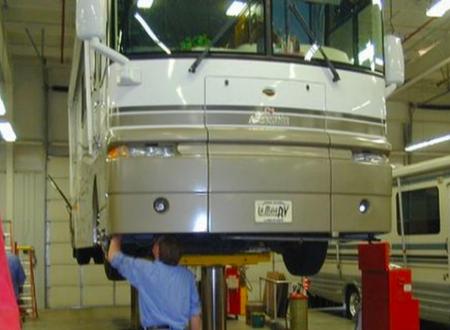
The most important thing on your RV checklist when planning a road trip should be to check your brakes. Their maintenance is vital and must remain lubricated, especially throughout the summer.
Physically inspect the brakes to ensure that the brakes have enough material on them and that they are working efficiently, thus allowing you to get a good working braking when on the road.
A common issue among brakes is worn brake pads. It is better to perform a live braking test to identify any irregularities. If your RV is a trailer, you can apply contact cleaner to clean your brake connector.
You should also inspect your breakaway switch to make sure it is in good, working order. Brake replacement is an added expense and typically includes replacing the seals and repacking the wheel bearings.
While you should always be on the lookout for any wear and tear of your RV’s brakes, it is advisable to have the brakes serviced professionally once a year. If you are a towable owner, always use the RV and tow vehicle together to avoid accelerating wear.
[su_divider text=”Go to the Top” style=”dotted” size=”1″ margin=”20″ class=”.my-custom-divider”]2. Are Your Appliances Secure?
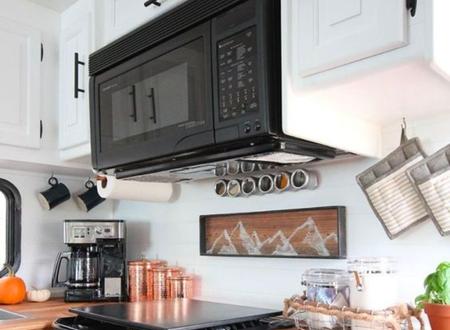
Another important thing before heading down the road is to secure the interior of your RV. People who do not secure their belongings properly face a lot of problems. If they do not lock the doors and windows, secure the cabinets, and clear the countertops, there is going to be a mess waiting for them when they finally stop driving.
Make sure that your RV is loaded correctly in order to minimize the sway. Less sway ensures a smoother ride and less opportunity for internal things to shift during travel.
Many RVs make use of open shelves to display decorative items or kitchen utensils. While you are traveling, keep these items in the cabinet and use tension rods to keep them secure. When you reach your destination, you can always display them again.
Use refrigerator bars to keep the food secure inside the fridge. Place them carefully to keep the food from falling out of the refrigerator. Pack the food items closely together and place liquids on the bottom shelf or in the door racks to make sure they do not tip over.
Repack leftover food into plastic containers instead of glass. Ensure that the door of the refrigerator is firmly closed and locked before hitting the road.
[su_divider text=”Go to the Top” style=”dotted” size=”1″ margin=”20″ class=”.my-custom-divider”]3. Avoid Blowouts By Checking Your Tires
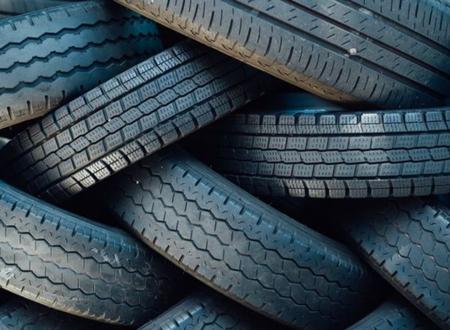
It is important to keep your tires in tip-top condition as they are critical to your safety on the road. They should be ready to handle all the roads that you are about to travel. Also, make sure that you get the size that is right for your RV.
It is vital to maintain proper air pressure in the RV tires to enhance tread life and overall performance. Improper inflation of tires could reduce fuel economy, traction, tread life, and load-carrying capability. It could also cause permanent structural damage and result in tire failure.
Check the inflation pressure of your tires at least once a month while your RV is in storage, as well as before and after trips. This will help you identify a possible leak that can catch you off guard when you are on the road. Rubber wears down with time and duration of your trips, so inspect them physically to look for cracks.
Keep your tires clean, covered, and protected when in storage for an extended period. The sun’s UV rays can cause your tires to deteriorate swiftly, causing you to replace them long before you wear out the tread. Use UV-protectant after cleaning your tires and cover them with tire covers when you put the RV in storage. It is a safe practice to engage the services of a professional every year to avoid tire blowouts when you are on the road.
[su_divider text=”Go to the Top” style=”dotted” size=”1″ margin=”20″ class=”.my-custom-divider”]4. Always Check Your Seams to Avoid Water Damage
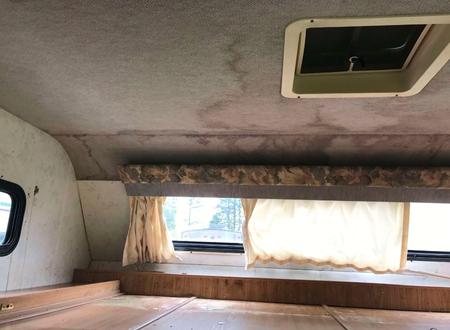
Water leaks in RVs can cause extensive damage and can be extremely costly to repair. Be sure to physically inspect your RV roof for leaks every three months.
Water may travel unnoticed through any open seam in your roof’s vents, air conditioning unit, skylights, and edges. Once it soaks through the roof’s outer wood framework, it will seep through the inner ceiling panels, resulting in extensive water damage.
There are various sealants available that can help you patch up an RV’s roof leak. RV roofs are made of different materials, including metal, fiberglass, rubber, etc. When looking for a sealant, make sure that you choose one which is compatible with the roof material of your RV.
Most people forget to check their RV seams. This is a costly mistake, as each seam has a viable leak potential. Inspecting and sealing the seams every couple of months can greatly reduce the chances of it springing a leak.
Start by physically inspecting the roof and move down the body of the rig. Look for any cracks, openings, or forms of damage. If you find the condition of the roof to be deteriorating, be sure to have it professionally resurfaced and sealed.
[su_divider text=”Go to the Top” style=”dotted” size=”1″ margin=”20″ class=”.my-custom-divider”]5. Road Trip Snacks Are a Must! But So Are Groceries
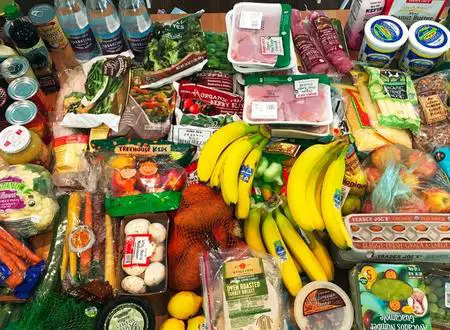
Grocery shopping for a long trip can be a tricky business. If you are going to be parked at a campground miles away from the nearest grocery store, it is better to stock up on groceries beforehand. But as you know, the RV refrigerators aren’t the biggest and the pantries do not have that much space. So how can you store a week’s worth of food in your RV?
You will have to skip the frozen nuggets and pizzas, and opt for unfrozen healthy foods. This will not only help you clear your freezer space, it will ensure that you eat a healthy diet.
Similarly, canned foods are heavy. Although you will need to buy some canned goods, look for alternatives when possible. For example, veggies and fresh fruit can be used instead of canned versions and canned beans can be replaced by dry beans.
When traveling with kids, it is also important to stock up on some snacks that can be easily eaten while on the road. Normal eating rules usually go out the window when you are on a road trip.
However, eating potato chips and candies can deprive your body of essential nutrients. Therefore, it is healthier to take some snacks such as beef jerky, protein bars, string cheese, and popcorn, etc.
[su_divider text=”Go to the Top” style=”dotted” size=”1″ margin=”20″ class=”.my-custom-divider”]RV Checklist
You may not have the time to perform a detailed check of your RV, but the above-mentioned RV checklist guide will give you an idea about what needs to be done before going on a trip. Set time aside to prepare your RV for camping season. Don’t compromise on your safety and wait until the last minute.
Of course, checking your brakes and tires are most essential, but it’s always good to check everything so not to spoil your trips while you’re away.

Hello, fellow wanderers! I’m Alyssia. Since 2008, my husband and I have called an RV our home, journeying through life one mile at a time. Our nomadic lifestyle has led us to over 70 countries, each with their unique tales that have shaped our own.
I share our stories and insights right here, hoping to inspire and guide you in your own adventures. Expect tips on RV living, our favorite camping spots, breathtaking hiking trails, and the joys and challenges of an ever-changing view from our window. Alongside, you’ll also find practical advice on outdoorsy stuff, designed to equip you for any journey. Join us as we continue to explore the vast, beautiful world on wheels!